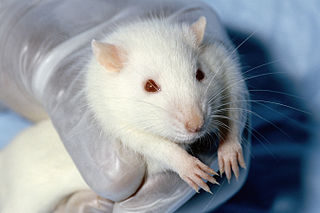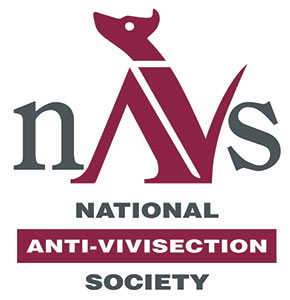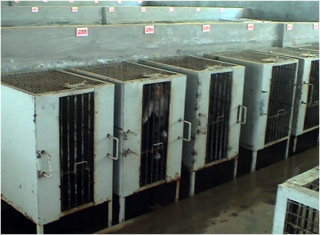| Animal testing |
|---|
 |
| Main articles |
| Testing on |
| Issues |
| Cases |
| Companies |
| Groups/campaigns |
|
| Writers/activists |
| Categories |
The Boyd Group is a Britain-based, independent think tank considering issues relating to animal testing.
| Animal testing |
|---|
 |
| Main articles |
| Testing on |
| Issues |
| Cases |
| Companies |
| Groups/campaigns |
|
| Writers/activists |
| Categories |
The Boyd Group is a Britain-based, independent think tank considering issues relating to animal testing.
The group was founded in 1992, the idea forming from a dialogue between Colin Blakemore, a strong advocate of animal testing and subsequently chief executive of the Medical Research Council, and Les Ward, then director of the anti-vivisection group, Advocates for Animals. The group is named after its chairman, Kenneth Boyd, a professor of medical ethics at the University of Edinburgh. [1]
The groups states its primary objective is to act as a "forum for open exchange of views" on "issues of concern" to its membership and, whenever possible, form consensus and make recommendations. [2] However, due to the diverse membership, the group will often fail to find consensus. In these situations, they aim to publish "an agreed account of where members (as people familiar with the issues) differ from one another, regarding what they consider to be the relevant facts, the best interpretation of these facts and relevant moral arguments". [2] Issues for debate are raised by members, then discussed by the group (or a sub-group). Occasionally, the group may communicate with other bodies, such as Pro-Test. [3]
Patrick Bateson has said of the group:
I was involved [with the Boyd Group] when Kenneth Boyd was doing his early report with Jane Smith for the Institute of Medical Ethics. We were a disparate group of people ranging from some gung-ho scientists on the one hand to some hard-line animal rights people on the other hand. We worked together for three years and eventually we were all talking to each other. It can be done. Even the groups which seem so implacably opposed can end up understanding that there might be agreed positions, because the moral issues are numerous and we have to try to bring these very different forms of morality together. [4]
The Boyd Group has been criticized by some anti-vivisection organisations. Representatives of the National Anti-Vivisection Society (NAVS) told a House of Lords select committee the Boyd Group is a "talking shop" with a "pre-set agenda." [5] However, Les Ward defended Advocates for Animals' membership of the group and the effectiveness of a collaborative approach:
Before cosmetic testing was abolished by the government, or a ban introduced, the Boyd Group called for it to be banned. That was great, here was the animal welfare and the scientific community going together to the Home Office with a powerful voice and putting the case forward." [6]
The group had, according to Blakemore in 2002, "about 25 member organisations" [7] including animal welfare groups, anti-vivisectionist groups, charitable bodies, government, industry, veterinarians, academic scientists and philosophers. The membership includes both expert individuals and those nominated by, and representative of, groups or societies. The group invites applications for membership, but excluding only individuals and groups that "support violent activity or break the criminal law". [2] Identified members, past and present, include:
The Boyd Group lacks representation from a number of large anti-vivisectionist organisations, with Blakemore admitting their "credibility is reduced because of that". [7] Both Ward and Blakemore have expressed a wish to include more of these organisations, including BUAV, NAVS, PETA and Animal Aid. [6] [10]
Ward has since withdrawn from the Boyd Group, believing it had become "stalemated", but in 2006 continued to defend his participation in "one of the few places where moderate activists and moderate scientists sat down and talked things over." [12]

Animal welfare is the well-being of non-human animals. Formal standards of animal welfare vary between contexts, but are debated mostly by animal welfare groups, legislators, and academics. Animal welfare science uses measures such as longevity, disease, immunosuppression, behavior, physiology, and reproduction, although there is debate about which of these best indicate animal welfare.

Animal testing, also known as animal experimentation, animal research, and in vivo testing, is the use of non-human animals in experiments that seek to control the variables that affect the behavior or biological system under study. This approach can be contrasted with field studies in which animals are observed in their natural environments or habitats. Experimental research with animals is usually conducted in universities, medical schools, pharmaceutical companies, defense establishments, and commercial facilities that provide animal-testing services to the industry. The focus of animal testing varies on a continuum from pure research, focusing on developing fundamental knowledge of an organism, to applied research, which may focus on answering some questions of great practical importance, such as finding a cure for a disease. Examples of applied research include testing disease treatments, breeding, defense research, and toxicology, including cosmetics testing. In education, animal testing is sometimes a component of biology or psychology courses. The practice is regulated to varying degrees in different countries.

The Royal Society for the Prevention of Cruelty to Animals (RSPCA) is a charity operating in England and Wales which promotes animal welfare.

Vivisection is surgery conducted for experimental purposes on a living organism, typically animals with a central nervous system, to view living internal structure. The word is, more broadly, used as a pejorative catch-all term for experimentation on live animals by organizations opposed to animal experimentation, but the term is rarely used by practising scientists. Human vivisection, such as live organ procurement, has been perpetrated as a form of torture.

In the animal rights movement, cruelty-free is a label for products or activities that do not harm or kill animals anywhere in the world. Products tested on animals or made from animals are not considered cruelty-free, since these tests are often painful and cause the suffering and death of millions of animals every year.

Richard Hood Jack Dudley Ryder is an English writer, psychologist, and animal rights advocate.

The Animals Act 1986, sometimes referred to as ASPA, is an Act of the Parliament of the United Kingdom passed in 1986, which regulates the use of animals used for research in the UK. The Act permits studies to be conducted using animals for procedures such as breeding genetically modified animals, medical and veterinary advances, education, environmental toxicology and includes procedures requiring surgery, if certain criteria are met. Revised legislation came into force on 1 January 2013. The original act related to the 1986 EU Directive 86/609/EEC which was updated and replaced by EU Directive 2010/63/EU

Sir Colin Blakemore,, Hon was a British neurobiologist, specialising in vision and the development of the brain. He was Yeung Kin Man Professor of Neuroscience and senior fellow of the Hong Kong Institute for Advanced Study at City University of Hong Kong. He was a distinguished senior fellow in the Institute of Philosophy, School of Advanced Study, University of London and Emeritus Professor of Neuroscience at the University of Oxford and a past Chief Executive of the British Medical Research Council (MRC). He was best known to the public as a communicator of science but also as the target of a long-running animal rights campaign. According to The Observer, he was both "one of the most powerful scientists in the UK" and "a hate figure for the animal rights movement".
The Animal Procedures Committee advised the British Home Secretary on matters related to animal testing in the UK. The function of the committee was made a statutory requirement by the Animals Act 1986, which mandated that it should have at least 12 members, excluding the chair. The APC no longer exists as the ASPA has been revised in accordance with EU legislation. It was disbanded on 31 December 2012 and was replaced by the Animals in Science Committee in 2013.

Cambridge University primate experiments came to public attention in 2002 after the publication that year of material from a ten-month undercover investigation in 1998 by the British Union for the Abolition of Vivisection (BUAV). The experiments were being conducted on marmosets, and included the removal of parts of their brains intended to simulate the symptoms of stroke or Parkinson's disease. Some of the research was theoretical, aimed at advancing knowledge of the brain, while some of it was applied.
Gillian Rose Langley is a British scientist and writer who specialises in alternatives to animal testing and animal rights. She was, from 1981 until 2009, the science director of the Dr Hadwen Trust for Humane Research, a medical research charity developing non-animal research techniques. She was an anti-vivisection member of the British government's Animal Procedures Committee for eight years, and has worked as a consultant on non-animal techniques for the European Commission, and for animal protection organizations in Europe and the United States. Between 2010 and 2016 she was a consultant for Humane Society International.

The National Anti-Vivisection Society (NAVS) is an international not-for-profit animal protection group, based in London, working to end animal testing, and focused on the replacement of animals in research with advanced, scientific techniques. Since 2006, the NAVS has operated its international campaigns under the working name Animal Defenders International (ADI), and the two groups now work together under the ADI name.

Experiments involving non-human primates (NHPs) include toxicity testing for medical and non-medical substances; studies of infectious disease, such as HIV and hepatitis; neurological studies; behavior and cognition; reproduction; genetics; and xenotransplantation. Around 65,000 NHPs are used every year in the United States, and around 7,000 across the European Union. Most are purpose-bred, while some are caught in the wild.

Nafovanny in Vietnam is the largest captive-breeding primate facility in the world, supplying long-tailed macaques to animal testing laboratories, including Huntingdon Life Sciences in the UK and Covance in Germany.

Animal testing regulations are guidelines that permit and control the use of non-human animals for scientific experimentation. They vary greatly around the world, but most governments aim to control the number of times individual animals may be used; the overall numbers used; and the degree of pain that may be inflicted without anesthetic.
Animal ethics is a branch of ethics which examines human-animal relationships, the moral consideration of animals and how nonhuman animals ought to be treated. The subject matter includes animal rights, animal welfare, animal law, speciesism, animal cognition, wildlife conservation, wild animal suffering, the moral status of nonhuman animals, the concept of nonhuman personhood, human exceptionalism, the history of animal use, and theories of justice. Several different theoretical approaches have been proposed to examine this field, in accordance with the different theories currently defended in moral and political philosophy. There is no theory which is completely accepted due to the differing understandings of what is meant by the term ethics; however, there are theories that are more widely accepted by society such as animal rights and utilitarianism.

Pedigree Dogs Exposed is a BBC One investigative documentary, produced by Jemima Harrison, which looks into health and welfare issues facing pedigree dogs in the United Kingdom. It was originally broadcast on 19 August 2008.

In New Zealand, animals are used in many situations for research, testing and teaching (RTT).

The Three Rs (3Rs) are guiding principles for more ethical use of animals in product testing and scientific research. They were first described by W. M. S. Russell and R. L. Burch in 1959. The 3Rs are:

Christopher M. Sherwin was an English veterinary scientist and senior research fellow at the University of Bristol Veterinary School in Lower Langford, Somerset. He specialised in applied ethology, the study of the behaviour of animals in the context of their interactions with humans, and of how to balance the animals' needs with the demands placed on them by humans.